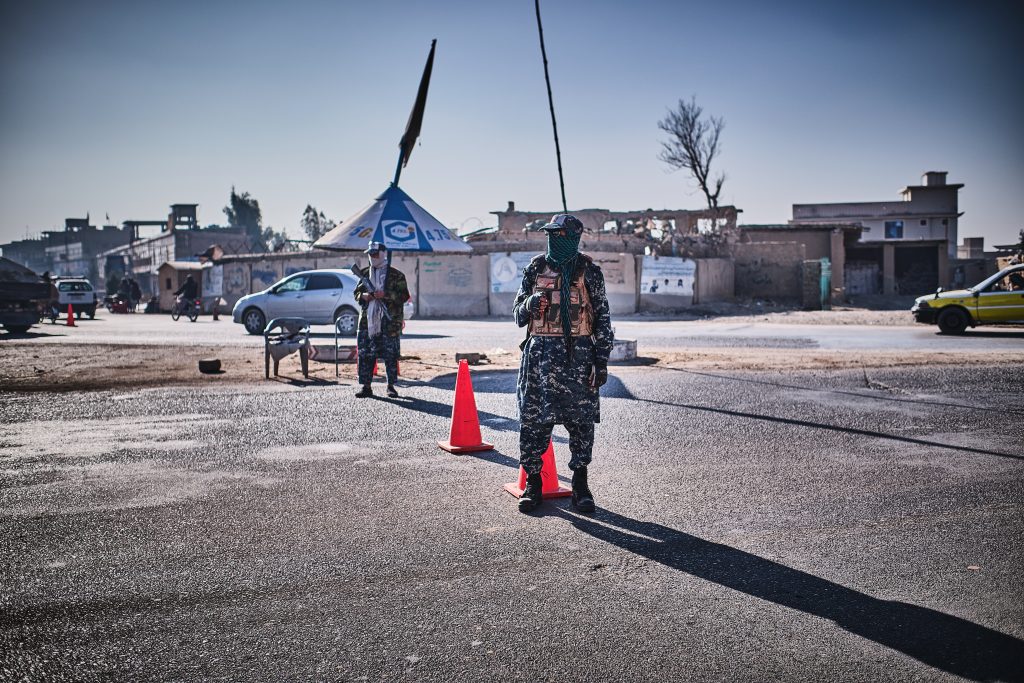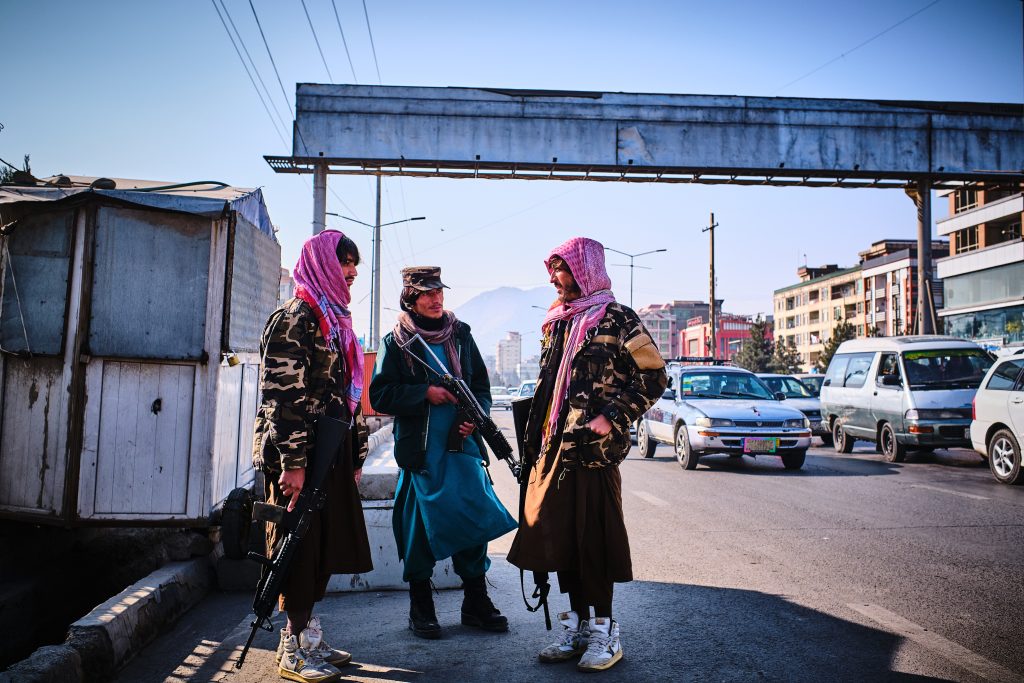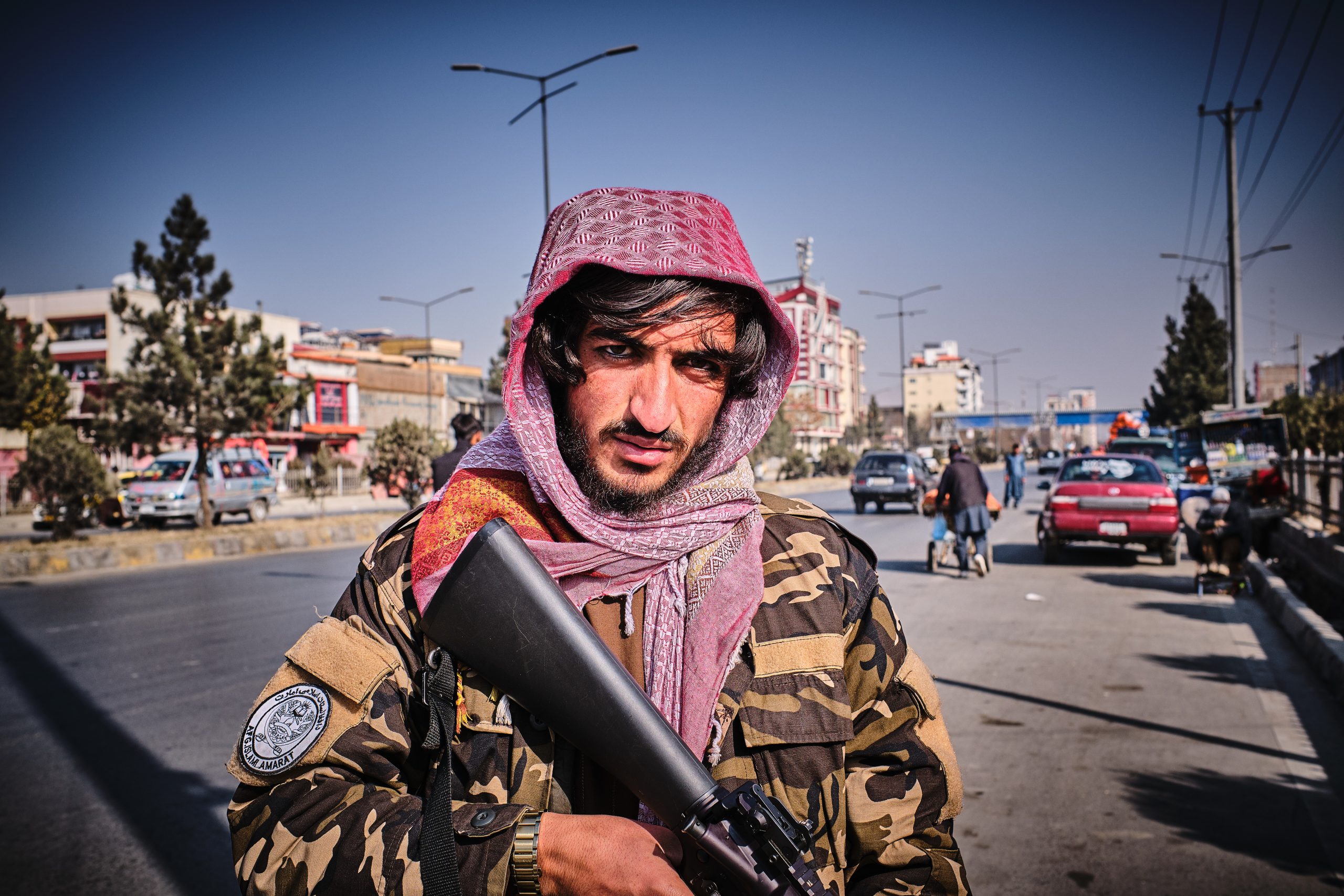By: Angelo Calianno.
Today, I have returned to Afghanistan after 4 years.
In 2018, I left a country that was a constant victim of Taliban attacks; In Kabul, this happened around twice a week, but the rest of the country suffered much more frequently. I left a country at war, where roads were closed due to the sever risk of kidnapping and murder. Today in Kabul I find myself in a surreal situation. The Taliban are wandering around the city with American semi-automatic weapons and items of US Military uniform. What used to be official army checkpoints are now manned by the Taliban. The Afghan tricolor has been removed and replaced by a white flag with Arabic scripture scrawled across it. It reads:
“I am a witness that no one deserves worship but Allah. I am a witness that Mohammed is his only prophet.”
Taliban representatives keep telling me at each encounter: “Now, everything is safer. We have defeated evil; The Americans were evil. We fixed the corruption and restored order. We won this war and expelled those who occupied us.”

However, it only takes a little bit of time to understand that things are not exactly as they are presented. In the capital alone, more than half of the shops, cafes and tearooms are closed; in the provinces, it is even worse. The streets, which were once a bustling scene of life, are now crowded by dozens of women and children begging to scrape together a few coins, people running clinging to taxis or simply sitting in the middle of a busy main road.
It is true that the attacks have decreased (since they were mainly carried out by the once-opposing Taliban who have now forced themselves into power), but they have not stopped. The men of DAESH, better known as ISIS-K, are now the opponents of the Taliban regime and the former Taliban insurgents are finding themselves dealing with their own insurgency. Suicide attacks occur in the most crowded places and "sticky bombs" are planted near the checkpoints. Under the Taliban the conflict has not ceased – the position of its players have simply changed.

In a country where conflict is still raging, where cash flow has frozen, where you have to wait months to withdraw only 200 dollars, where more and more people are starving, and where no viable plan has been announced, what kind of future is possible? We asked Noor Mohammad Ahmadzai, Professor of Research, Assessment, and Language Education at Kabul University.
Mohammad, every day you go to your office at the university, but without students. How are you feeling these days?
"It is very difficult; we are all very worried. I used to earn 1000 dollars per month, now I just got 500 for 4 months and I have to support my family too. I keep coming here because I have to, but in reality, all we do is wait, it has been months now.
We Professors have also tried to have a dialogue with the Taliban, also proposing to divide the classes between men and women, even on different days in order to be able to give more education. However, the answer never came; they keep postponing the meetings or not responding at all.”
Many people, especially the young, fled immediately after the arrival of the Taliban. What do you think? Are you trying to escape too?
It is very sad for me that all those people ran away, but I cannot blame them. People try to build a better future for themselves and their loved ones, and as you can see, we know nothing here except that the Taliban are in charge and that there is no money. Furthermore, Afghanistan imports almost everything, so we are forced to always rely on the dollar. In short, our currency has no purchasing power.
About me, I would never go away. First, I love this country, I am in love with it and anyway, I am not that young to start a new life elsewhere.
Other than that, I would never leave my students. They are already having a terrible time. Generations here know nothing but attacks, bombs, occupation and wars. I couldn't leave them without even a teacher's lead".
I would like to ask you two possible solutions: an idealistic one, which you dream of, even if it may never happen, and a more realistic one, a solution that could be a real possibility
“The ideal solution would be place without the Taliban and with a democratic force. However, it is not realistic now. Of course, there would be the Tajiks: “The Lions of Panshir’, now the only group that could oppose the Taliban regime (even they are economically too weak now). Nevertheless, this perhaps means another war. Afghanistan will not survive another conflict.
This country has already suffered too much.
I think the best scenario now would be the diplomatic pressure from the international communities. Trying to convince the Taliban, perhaps through economic agreements, to integrate ethnic minorities such as Hazaras, Shiites, Tajiks and Uzbeks into the government. Above all, reopen schools and universities.
Many of the Taliban are boys who have been training and fighting since they were children. They know only weapons and hatred. I am sure that they too, connected with civilization, with more educated people, can change. Even if at the moment, this change seems so far away.”
While there are people like Mohammed still holding out hope for their country, many Afghans are now only focusing on how to escape the place they once called home. Every day, hundreds of people queue outside the embassies of neighboring countries, Iran and Pakistan, trying desperately to get an exit visa. Thousands more try to cross the borders illegally through the mountains.
Every time I interview someone or listen to a story, I am told a prayer:
“Don't turn your back on us. Please continue to follow what is happening in Afghanistan, it is the only thing keeping the Taliban from doing the same things they did 20 years ago. Being at the center of media attention is keeping us alive.”

No comments.